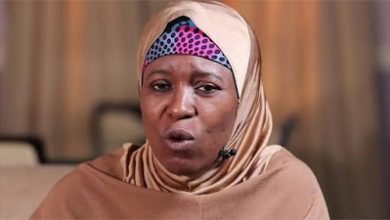Insurgency: Over 4,000 fighters dump Boko Haram

Over 4,000 Boko Haram fighters have left the extremist group, signalling a huge shrink in the rank of the terrorists according to a report by the Institute for Security Studies (ISS).
According to the report from ISS, the deserters from the four Lake Chad Basin countries (Cameroon, Chad, Niger and Nigeria) are leaving for various reasons which include safety concerns.
Boko Haram and other terror groups have terrorised the Lake Chad Basin countries for over 10 years.
The unending terror war has displaced thousands of nationals of the four countries.
The crisis has also crippled economic activities in the once booming fish market in the region.
Thousands of people have been kidnapped by the terrorists and many have been killed.
According to the report by ISS, some of the insurgents joined willingly, others were conscripted or abducted and held captive in Boko Haram strongholds.
The report said although accurate figures were difficult to find, their data suggests at least 2,400 desertions in Chad, 1,000 in Nigeria, 584 in Cameroon and 243 in Niger.
“Motives for leaving Boko Haram include individual circumstances, safety concerns and the groups’ internal dynamics, among others”.
“On the individual level, some people disengage because their expectations – based on religious ideals or economic opportunities – have not been met”.
“For others, poor living conditions in the camps are a factor. The exposure to intensifying military offensives such as air strikes by Lake Chad Basin countries and the effective deployment of the Multinational Joint Task Force make the situation untenable”.
The report says that strict rules were given to the members by the terrorist group which includes corporal punishment for those who go against the laws of the group.
“These rules include ‘immorality’, stealing, drug abuse, etc. Within the group, the uneven application of rules fosters a sense of injustice. In some cases, the death penalty is applied. Inter-faction rivalries and violence have also caused people to leave.”
The report says the uncertainty of what happens to those who leave has made others not to make the same decision.
“The third problem is that communities aren’t centrally involved in reintegration processes even though they facilitate disengagement and are the first point of contact for ex-Boko Haram associates”.
“The way in which ex-Boko Haram associates are received and screened must be predictable and based on standard reception-screening-profiling mechanisms”.
“Regional standards and protocols along with enabling legislation should guide demobilisation in the four Lake Chad Basin countries”.
“Specific policies on the role of women and children in violent extremism are also needed. To build societal resilience to groups like Boko Haram, community participation should be prioritised throughout the rehabilitation process, including design, implementation and evaluation.”
“Through cooperation and sharing lessons, countries in the Lake Chad Basin region can develop national and regional strategies that work”.
Teniola Tayo, a researcher at the Lake Chad Basin Institute for Security Studies, while commenting on the report said the various countries concerned have accepted the report.
“Yes we had a closed dissemination webinar with stakeholders engaged in DDR in the four countries. They all welcomed the findings,” she said.
Malik Samuel, another official of ISS said the figures were official.
According to him,“The figures of deserters quoted in the report were obtained from government authorities in the region. For instance, the figures from Nigeria were obtained from Operation Safe Corridors”.
He said the only difficulty was the number of those who left the group because there were some who tried to leave the group and re-join the society without government intervention.
“In these cases, you see that it is difficult to get the actual numbers of deserters,” he said.




